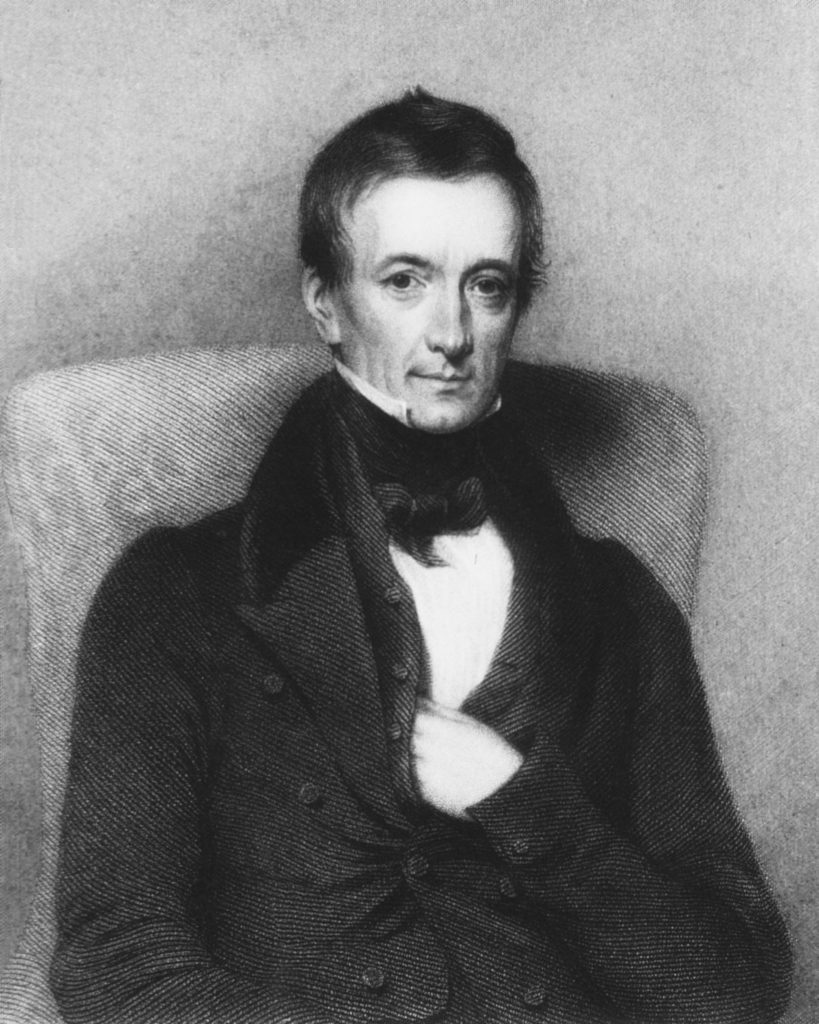
Order From Tragedy: Roget and The Origin Of The First Thesaurus
Beautiful Tools Borne Out of Less Beautiful Circumstances – Peter Mark Roget (1779-1869)
Peter Mark Roget was a remarkable man. A lexicographer whose invention has helped almost everyone who speaks English at some point or another.
Don’t believe us?
You’ll almost definitely have used an item he created. There may even be one on your bookshelf at home. And you’ll certainly have one on your computer.
We’re talking, of course, about the thesaurus.
This humble book was first written by Roget himself, who gave his name to the first English-language versions.
Since it was first published, the thesaurus has been used by crossword puzzlers, writers, students, journalists, and academics alike in a bid to expand their vocabulary or create compelling work.
Its digitization and incorporation into word processing programs, such as Microsoft Word, only made it even more popular. Nowadays, looking up synonyms is as simple as a mere right-click.
Although we have a lot to thank Roget for, the true story behind the first thesaurus is nothing short of a tragedy. Let’s learn more about the man behind the thesaurus.
A Learned Man
From a privileged background, with revered lawyers and clerics among his close family, Roget joined an equally prestigious profession in becoming a physician.

However, Dr. Roget’s interests were not limited to medicine alone: with an inquisitive mind, his interests, skills, and talents were as diverse as they were interesting. From beekeeping to chess, the kaleidoscope, and cinematics, there was not much he didn’t enjoy getting stuck into, working in collaboration with many scientists and academics as well as maintaining an active physician’s practice.
During his career, he had a hand in discovering nitrous oxide as an anesthetic, the creation of the London sewage system, the invention of the slide rule, and the development of the cinema industry.
Counting Samuel Taylor Coleridge and Poet Laureate William Wordsworth among his friends, he was a prolific figure in the intellectual world.
However, behind the accolades and accomplishments laid a tragic story that propelled him to create a book that would go on to become one of the most useful reference tools in the English language.
Escape From Madness – The Man Who Made Lists to Cope With Mental Illness
Dr. Roget’s life was trauma-filled from the beginning.
Peter struggled with depression his whole life. His mother, Catherine, never recovered after Peter’s father died when Peter was four years old. A difficult, demanding, and paranoid woman, life with Catherine was turbulent, with her often accusing the help of plotting against her.
Things were not much better in Peter’s wider family: his sister and grandmother both suffered poor mental health, plagued by depression and schizophrenia. His daughter would go on to suffer similar troubles. Most tragically, Peter was in the room when his uncle Sir Samuel Romilly took his own life.
The pain, grief, and sorrow surrounding Peter’s tragic family circumstances would be difficult for any regular person to cope with.
Peter Mark Roget, however, was not a regular person.
From the age of 8, Peter had had an obsessive habit of making lists to help him cope with his traumatic family life.
The History of Roget’s Thesaurus – One of the Most Widely Used Reference Works Ever Published
Aged 26, Peter began his reverse dictionary: a list of synonyms; a tool for situations where the user already knows the definition but needs the related word.
Originally started as a reference to help him become a better writer, expanding his compendium of synonyms swiftly became more than a pastime. It was a coping mechanism for the extensive tragedy in his life.
He collected words with the thirst of a man with a purpose. Grouping the words according to subject and discipline, this organizational fervor was a source of stability for Peter.
Looking back from the 21st century, and with the mental health awareness we have now, we can tell this obsession with organization was typical obsessive-compulsive behavior – rigid, inflexible, and bound by order.
Nonetheless, amassing the 15,000 entries in his private synonym collection was no mean feat. Spanning multiple disciplines and specialties, the thesaurus reflected Peter’s eclectic interests and diverse scholarly pursuits. How one man’s knowledge could so effectively cover so many fields is truly astonishing.
Ever the intellectual, Peter looked to the Greek language to name his invention. The word he chose for his curation reflects his love for the collection of words. He called it a ‘treasure house’: a thesaurus.
Publishing the First Thesaurus
At first, Peter’s thesaurus was a private work. Only after he had retired from professional life in the 1840s did he think about organizing and publishing it.
Inspired by the systems used for classifying books, plants, and animals, Peter spent years crafting and perfecting an indexing system for his synonyms to make them accessible to others. This mammoth task kept his brain busy during his retirement.
The first edition of Roget’s Thesaurus of English Words and Phrases was printed in 1852, and has never been out of print since.
Immediately popular in Britain, the thesaurus gained a similar following in the United States when crossword puzzles began to become popular in the 1920s. The book has since become a permanent fixture in every library reference section.
After Peter’s death in 1869, his son John Lewis Roget revised and expanded the thesaurus, with John’s own son Samuel Romilly Roget then taking the mantle of the lexicographical dynasty well into the mid-20th Century, propelling Roget’s thesaurus to what it is today.
It is remarkable to think that such a library staple was created as a way to cope with mental health struggles.
Noah Webster: the Man Behind the American English Dictionary
Strangely enough, a similar tale lies behind the creation of the first American English dictionary.
Noah Webster, a man hugely influential in creating American English as we know it today, also created a great reference work to cope with poor mental health.
Suffering from depression and obsessive-compulsive disorder after completing his academic studies, Noah found solace in writing books to help schoolchildren learn and master English. Sales of these widely used ‘Blue-Backed Speller’ books funded his true passion: his dictionary.
In his own word collection, Noah wanted to recognize and streamline the various dialects found in English spoken all across North America. In curating his collection of more than 70,000 words, he normalized American English spellings and recorded more than 12,000 uniquely American words in a dictionary for the first time ever when he published the first edition in 1828.
No Comments for "Order From Tragedy: Roget and The Origin Of The First Thesaurus"